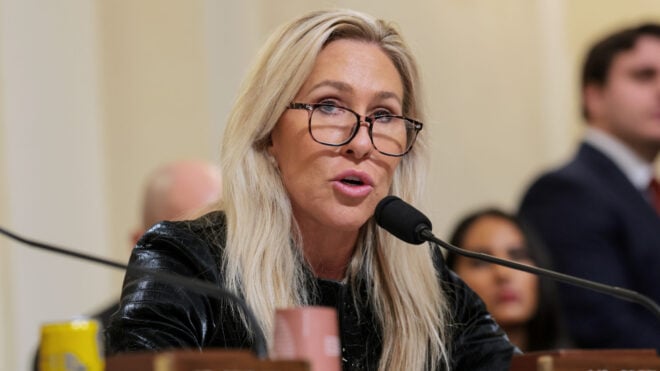
When two people divorce, there are usually major feelings on both sides. Even when things end amicably, it's still rough. And a lot of questions can come up when two people are trying to figure out some tough stuff, like shared custody, dividing assets, and … paying alimony. It turns out that it's not unusual for a divorced partner to take issue with the last one, though.
The question of whether or not alimony should still be paid these days is one that has been raised over and over again. A lot of people who are in their 20s and 30s feel like paying alimony is a thing of the past, but older divorced people roundly disagree.
One divorced partner recently opened up the question online:
"Why should someone (male or female) have to pay 30% of their income – 20% of their spouse's income (which is often 0 since they would receive more in alimony than a minimum wage job) for the rest of their life. Granted this is normally awarded longer-lasting marriages but how is that fair?"

The person continued: "If the husband or wife busted their [expletive] going to medical school, took out multiple loans, became a doctor, and makes 300,000 a year while their spouse sat on their [expletive] at home or worked as a cashier at Walmart, how is it fair that upon divorce after 7+ years they now make 90,000 a year for doing absolutely nothing?"

The original poster went on to add: "For the rest of their life to maintain their 'lifestyle.' The only reason you had that lifestyle in the first place was because of your spouse and now you choose not to be together yet he or she still has to take care of you for the rest of their waking life? How the [expletive] is that fair?"

A lot of people were immediately in this person's corner. One person said that they believe alimony is simply outdated: "It's a remnant from a time when women didn't work. In those times, the woman and children would be destitute without that money. It's not valid nowadays in most cases though."

Another person said that first, the "forever" nature of the institution of marriage has to be taken into account: "If you take the 'in love' aspect out of it, and look at a marriage from the legal/business aspect, it is essentially two individuals who are entering into a lifetime partnership ( 'Til death do you part'), forgoing individual legal status in place of this partnership. The value of your worth as married partners will always be more than the sum of your individual parts."

The person continued in this vein, drawing additional comparisons between employment and marriage:
"If one has a legally reasonable expectation (especially with a contract) to be ,for example, employed by an employer for ten years, but is cut loose after 7, then they must either be bought out of the contract, or can sue for the losses. If the same employee ended up making detrimental decisions based solely on the belief that the contract would be upheld, then they could also claim promissory estoppel was committed by the employer backed out.
"So, if a marriage certificate is really a contract guaranteeing a partnership for the rest of your lives, and guarantees that the financial benefits of that partnership be shared 50/50, then, legally speaking, I don't think it's a stretch to arrive at the conclusion that if one breaches the contract, that it would be different than any other legally binding contract."

Another person added that while they are happily married, they had a tool at their disposal and they used it: the prenup.
"People need to see prenups as a worthwhile way to protect yourself.
“Prior to getting married, I already owned my own home. He was going to move in with me and my family is very comfortable with a sizable family trust. Before we decided to get married I asked for pre marriage counselling and a prenup. We talked everything over and reached an agreement that works for us. I don’t have to worry about being taken advantage of and he doesn’t have to worry about financial losses if we choose to divorce.
“We love each other. But we are also aware that for the sake of financial stability in our marriage these things needed to be in place.”

Plenty of people can see both sides of the argument but wonder how the original divorced partner feels about a common scenario like this: "I agree for most part but take this scenario. Wife leaves job to be full time stay at home mom. Divorce later on when shes like 35-40. She gave up career opportunities to be a mom. Could've been a high level manager by that age. It would be hard for her to find employment and will have to start from scratch and even then advancement would be limited."

The person who originally asked the question had a quick retort, though:
"I feel like an adult should never be responsible for another adult. For example in NJ, you still have to pay child support if the 'child' decides to go to college. That blows my mind.
“But anyway just because you have no work history doesn’t mean you can’t go get a job. And the fact that it’s based on how much the ‘breadwinner’ makes is ridiculous.
“You give up the breadwinner, you give up his/her lifestyle.”

The laws about alimony in the United States are actually based on the laws of the Ecclesiastical Courts in England. Those laws say, "Since the husband was the sole owner of all marital property, and the wife depended upon him to provide for her sustenance, the English Ecclesiastical courts consistently ruled that the husband had the duty to provide for the wife after divorce as well. Otherwise she would become, 'a burden of the people.'"

However, these days the idea of alimony is starting to lose favor. Women are employed just as much as men are, for starters. Kristen Houghton writes, "Today, with women as well as men working outside the home, the idea that anyone with a well-paying job needs to receive extra income simply because they were once married is antiquated and ludicrous.
"If both partners are able to support themselves, additional money from a former spouse, barring child support, is unnecessary and punishing."

She goes on to explain that no one should lose financially in a divorce, and that the care of children should absolutely be split according to income: "The support of a child should be the responsibility of both parents. If one makes considerably more than the other, the division of support should show it. Instead of a 50/50 support contract it may well be 75/50 or whatever is fair. A woman making three times more a year than her ex-husband is capable of giving more money to support the child. Fair is fair."

Obviously, conversations surrounding alimony are emotional for everyone involved. And really, it might be helpful for the original divorced partner to consider their own logic:
"Going by your logic, the husband or wife who busted their ass through medical school and loans should never have married the 'deadbeat' spouse you are stereotyping in the first place. Why did they even marry a freeloader or someone who clearly did not have a similar income or career trajectory or aspirations?"
Why, indeed.




